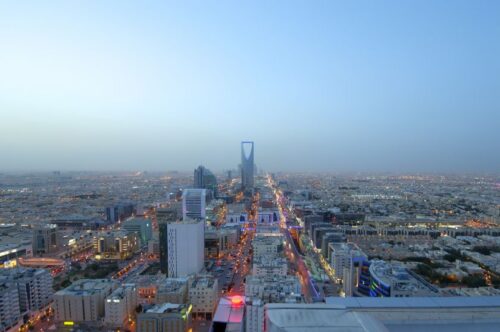
Amid one of the most dramatic years for Israel’s security and future since its founding, the country’s third Security Conference convened under the banner “The Year of Opportunity.” The main message was clear: this is no time for hesitation – but a time for action.
The conference, organized annually by the IDSF movement, featured prominent figures from Israel’s political and defense leadership. Among the speakers were Minister of Economy and Industry Nir Barkat, Minister of Education Yoav Kisch, Gilad Erdan (Israel’s former Ambassador to the UN and the US), and David Friedman (former US Ambassador to Israel). President Isaac Herzog, Minister of Foreign Affairs Gideon Sa’ar, and Defense Minister Israel Katz addressed the conference via recorded messages.
True to the broad approach that characterizes the IDSF movement’s work since its establishment, the conference focused on Israel’s national security in the broadest sense. A significant portion of the event was devoted to ways to bolster national resilience, social cohesion, and education toward Zionist values, recognizing these as the foundation on which the nation’s military and diplomatic strength is built.
In addition to lectures and interviews, the conference offered three panel discussions addressing the main opportunities facing Israel at present:
- A diplomatic opportunity panel on “the day after Gaza,” alongside considerations regarding Judea and Samaria.
- A regional opportunity panel dealing with the Trump administration’s policies, Iran, Saudi Arabia, and the Middle East.
- A social opportunity panel asking how best to seize the potential for victory through settlement efforts and by revitalizing the Gaza border region and Israel’s north.
Participants on these panels included former senior security officials who are also members of IDSF, leading academic researchers and think-tank directors, high-ranking government and local authority officials, social entrepreneurs, and civic activists.
President Herzog: “We Must Emerge from the War Stronger”
President Isaac “Buzi” Herzog welcomed conference attendees, stating:
“We are in a critical period that calls for in-depth rethinking of the security frameworks we have relied upon and the security paradigms that we urgently need to adopt. As part of that, we must also delve into the current state of our society and nation and figure out how to emerge from this war stronger – not only in terms of security and diplomacy, but above all as a stronger Israeli society.”
Herzog also stressed the importance of turning the war imposed on Israel into an “opportunity not only to decisively repel threats posed by Iran and its proxies, but also to develop alliances and agreements across the region – particularly moving toward normalization with Saudi Arabia and extending relationships as far as India – thus reshaping realities for generations to come, integrating us further into the region. Not naively or blindly, but as a cornerstone of fortifying our security.”
He then praised IDSF’s contribution to public dialogue: “We do need not agree on everything – and indeed, I do not always agree with all positions – but I believe it is crucial to have a voice that acknowledges and speaks to Israel’s diversity. And unlike many in the TV studios, that voice is presented with statesmanship and respect, seeking to speak, to engage in discussion, to unite rather than to polarize.”
Defense Minister: “We Will Keep Striking Hard Anyone Who Threatens Us”
Defense Minister Israel Katz summed up a year and a half of sustained fighting on multiple fronts: “There is no doubt our adversaries now receive a loud and clear message: whoever raises a hand against Israel will have that hand cut off.”
Katz reiterated that the IDF and the Israeli defense establishment have inflicted substantial damage on Hamas, Hezbollah, and the Iranian “axis of evil,” thereby undermining Assad’s regime in Syria. He added that they would also deal a decisive blow to the Houthi terror organization in Yemen, “just as we have done in Iran, Gaza, Lebanon, and other arenas.”
Katz informed the audience that the defense establishment is currently creating a directorate responsible for facilitating voluntary emigration for Gaza residents who wish to leave, in line with the vision of President Trump. Katz concluded his remarks by expressing appreciation for the IDSF movement.

Brig. Gen. (Res.) Amir Avivi, Chair of the IDSF movement, began his talk with a forceful statement: “We are living in a historic, almost biblical era of immense opportunities. Let’s start talking about a vision for the day after the war, and make the most of these wartime opportunities to create a better future for Israel.”
He argued that in the coming months, Israel has an opportunity to secure a clear victory on all fronts – bringing down Hamas’ regime in Gaza, recovering the hostages, and striking a decisive blow (in tandem with the United States) against Iran’s nuclear program.
Avivi also warned about the growth of a radical Sunni axis – Turkey, Qatar, and ISIS – amid Iran’s potential weakening. He believes the solution lies in forming an American–Israeli–Sunni front that includes Saudi Arabia, the UAE, Indonesia, Malaysia, Oman, and other countries. “We want to see Russia and China drawn closer to the West and to us – not to Iran’s side.”
Lt. Col. (Res.) Yaron Buskila: From Collapse to Growth
Lt. Col. (Res.) Yaron Buskila, CEO of IDSF, opened his remarks by quoting from “In the City of Slaughter,” a poem by Haim Nahman Bialik depicting the 1903 Kishinev pogrom, and drawing parallels to the massacre on October 7.
He noted the crucial difference between the two tragedies was our collective reaction:
“We are no longer the same Jews, no longer a persecuted people hiding behind barrels of oil. We are a people who enlist in an army, who band together, who overcome adversity and gather the strength to fight for our land. We are a people who go to battle to bring back our hostages, and we are also sovereign in our land – free to decide to pay a price for their liberation. Yes, friends, we face problems – but these are the problems of a nation within its homeland. They are the trials and hardships of a growing, developing people – one that argues, but ultimately prevails.”
Or Yissachar: “Israelis no longer chase illusions of a quick fix – they demand action”
Or Yissachar, Deputy Director for Research and Content at IDSF, presented the “IDSF Index” for the first quarter of 2025. The survey explored what the public sees as the top priorities for the nation, comparing the results to a similar poll carried out by the movement’s research department in 2022.
The findings reveal that 51% of Israelis view the Iranian threat as the most urgent challenge today – a sharp increase from 35% in 2022. Only 10% of Jewish Israelis consider peace with the Palestinians feasible, with 80% of Israel’s Jewish population and 68% of the general public opposing the establishment of a Palestinian state based on the 1967 lines with Jerusalem as its capital. On the other hand, a significant majority – 78% – favor expanding the Abraham Accords and bolstering ties between Israel and other moderate states in the region.
“These numbers,” Yissachar concluded, “reflect not just a shift in public opinion but also a deeper change in mindset: Israelis are no longer chasing illusions of easy solutions – they want action, stability, strength, and security.”

Merav Leshem Gonen: “National resilience is built when it is allowed to hear other opinions”
The conference included panel discussions, lectures, and one-on-one interviews covering a range of topics, with emphasis on the security, diplomatic, and social opportunities that Israel can pursue in the wake of the devastating events of October 7.
Particularly emotional moments came when Merav Leshem Gonen, mother of Romi Gonen – released after 471 days in Hamas captivity – took the stage, alongside entrepreneur and media professional Orit Mark Ettinger, who lost many family members to terror attacks and in the current war over the years, yet in her grief never abandoned hope and faith.
The participants’ personal accounts and expert commentary merged into an overarching vision resting on one core insight: this is the historic moment in which Israel can solidify its position as a regional and global power, deepen its national resilience, and carve from the shock and turmoil of war not only new strength – but genuine hope.

A “Year of Opportunity”: “The nation of Israel needs a rebirth narrative”
Israel’s Third Security Conference differed from its predecessors. The first conference, held several months before October 7, spotlighted IDSF’s clear warning that multiple fronts – stretching from Gaza to Iran – were coalescing against Israel. The second conference took place under the shadow of the war that followed, triggered in part by ignoring IDSF’s alerts about the approaching conflict. The current conference has begun to glimpse rays of light and hope at the end of war.
“It’s no coincidence that we titled this conference ‘The Year of Opportunity.’ Yes, we took severe hits on October 7, and the war continues more than a year and a half later. But we can also see achievements,” noted Brig. Gen. (Res.) Amir Avivi at the conference’s conclusion. “I keep saying we stand at a historic juncture – ranging from fully dismantling the Iranian threat, through broad regional peace agreements, to the prosperity that lies ahead once Israel takes firm hold of itself. The scale of these opportunities is still hard for us to fathom.”
The conference closed with the singing of Hatikvah – “The Hope”, Israel’s anthem – which perfectly captured the spirit of the event: a profound belief that soon we will see the hostages return home, and that Israeli society will reunite around a shared vision that will propel it into a new and brighter future.
Photo credits: Omri Abuhatzira, Channel 14





